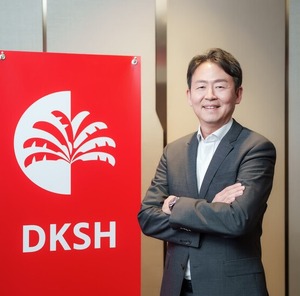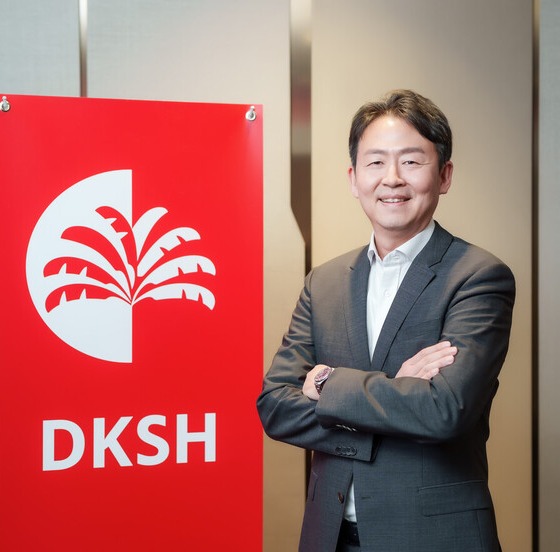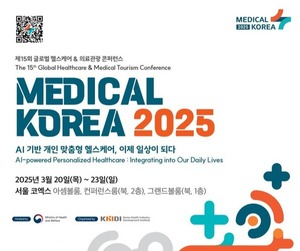DKSH Healthcare Korea eyes growth as flexible and capable partner: GM < Pharma < Article

Last year, DKSH, a global healthcare value chain company, caught the attention of the pharmaceutical industry when it announced a partnership with Kyowa Kirin for presecription drugs in Asia. Through this partnership, DKSH will import, distribute, and sell Kyowa Kirin products in Korea, Taiwan, Singapore, Thailand, Malaysia, Hong Kong, and Macau.
In particular, DKSH Healthcare Korea has gone beyond a simple product agreement to include employment and product rights transfer. DKSH Healthcare Korea, which has expanded its portfolio of prescription drugs, kicked off its activities in earnest by participating in the International Congress of the Korean Society of Hematology (ICKSH 2025) in March.
Korea Biomedical Review met with Hans Kim, General Manager of DKSH Healthcare Korea, at the company’s headquarters in Seoul to learn more about DKSH’s business direction and Korean market strategy.
During the interview, Kim said the company aims to be recognized as a “flexible but capable partner” in the medical and pharmaceutical industries, emphasizing its stable product supply and differentiated support for medical education.

Q: What are DKSH’s key focuses in the healthcare industry?
A: DKSH is one of the top 10 largest pharmaceutical companies in Asia by revenue. We have a wide range of service solutions, including e-commerce, telesales, and patient support programs, with our main business, commercial solutions, providing a wide range of activities. The Korean branch is relatively new and currently focuses primarily on the commercial space.
Q: What kind of commercial solutions do you offer?
A: Each client’s product life cycle and needs are different, so we provide customized services. Sometimes we provide a one-stop service that takes care of the entire process, and sometimes we only provide certain areas, such as licensing or 4PL (fourth-party logistics) services.
Q: So what are DKSH Healthcare Korea’s sales and marketing advantages compared to other Korean pharmaceutical companies?
A: We do not intend to compete in the 400-500 clinic channel network that Korean pharmaceutical companies have. DKSH’s core competitiveness lies in its credibility as a global partner, its high level of compliance, and its medical education capabilities. In particular, having recruited seven of the nine members of Kyowa Kirin’s medical department in Korea, we can continue to strengthen our medical education and clinical support. This sets DKSH apart from the traditional partnership model.
Q: How has DKSH Healthcare Korea been growing?
A: We have been growing in triple digits for three years. Last year, our revenue grew 280 percent year-on-year. This year, we expect to grow by 100 percent compared to 2024.
Q: What are the main disease groups and products that DKSH Healthcare Korea is currently focusing on?
A: There are three main areas. First, the circulatory system drug Atacand (candesartan cilexetil), which we introduced last year; second, products in the renal therapy area through Kyowa Kirin; and third, drugs related to blood cancers. These three areas are currently the most important disease groups for DKSH Healthcare Korea’s business.
In each of these areas, Atacand has been proven effective in hypertension and heart failure for more than 20 years and has been stably prescribed. In the renal category, we recently launched a new product called Orkedia (evocalcet). It is a treatment for secondary hyperparathyroidism associated with chronic kidney failure in patients on dialysis. In hematology-oncology, Romiplate (romiplostim), a treatment for thrombocytopenia and aplastic anemia, is growing through expanded indications and coverage.
Other products include Grasin (filgrastim) for neutropenia, Neulasta (pegfilgrastim) for neutropenia preventive therapy, and Nesp (darbepoetin alfa) for anemia. DKSH Healthcare Korea has the capabilities to grow and manage these diverse lifecycle drugs. The company plans to build on these areas and expand its investments into other disease groups if there are broader client groups and growth opportunities.
Q: Are there any conferences you are planning to attend this year?
A: We plan to actively participate in as many conferences as possible. First of all, we will participate in the Korean Society of Nephrology Congress (KSN 2025) in June at COEX in Seoul and the International Congress of Blood and Marrow Transplantation (ICBMT 2025) in September at BEXCO in Busan. Both congresses will feature DKSH sponsorship and a satellite symposium.
Q: What are the long-term goals and challenges for DKSH Healthcare Korea?
A: Of the 16 countries in which DKSH is present, Korea is the largest market, but its contribution to the overall company is not yet significant. Our goal is to grow our position as a healthcare solutions partner to match the size of the Korean market. We want to create a win-win business model with more partners. DKSH aims to be recognized as a flexible and capable company that can partner with new strategies in the changing pharmaceutical market.
We also want to play a role in introducing innovative products from Korea to Asia. DKSH can help Korean healthcare companies expand into the Southeast Asian market. DKSH can act as a bridge for Korean companies with drug development capabilities to enter the Southeast Asian market.
link





